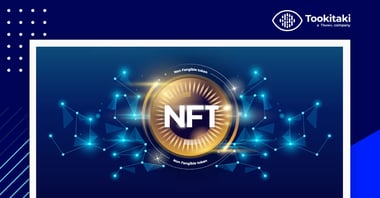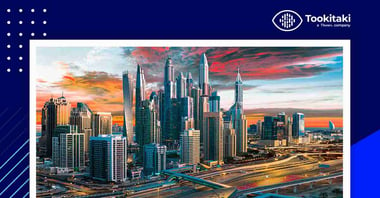In Dubai, Mohammed bin Rashid approves the Virtual Asset Regulation Law, which establishes a complex regulatory structure to protect virtual asset investors.
Sheikh Mohammed bin Rashid Al Maktoum, Vice President and Prime Minister of the United Arab Emirates and Ruler of Dubai, has passed a first-of-its-kind law in Dubai to govern virtual assets.
The Dubai Virtual Asset Regulation Law establishes a sophisticated legal framework to safeguard investors and promote responsible corporate growth in the virtual asset (VA) industry while adhering to the highest international standards.
Virtual assets, non-fungible tokens (NFTs), and cryptocurrencies will be regulated, licenced, and governed by an independent entity established under the Dubai World Trade Center Authority.
Sheikh Mohammed bin Rashid took to Twitter to say, “The future belongs to those who design it. Through the virtual asset law, we aspire to participate in shaping the future of this ever-evolving sector”.
He emphasised that Dubai possesses all of the capabilities that make it one of the most important worldwide centres for virtual assets, particularly the advanced regulatory framework. “Dubai will provide the most advanced virtual asset ecosystem in terms of organisation, governance and security.”
The regulation, according to Sheikh Mohammed, is an important step forward in the digital economy and protects investors’ rights. With the exception of the Dubai International Financial Centre, it will apply to all special development zones and free zones around the emirate.
Who is in charge of the UAE’s cryptocurrency regulations?
The Dubai Virtual Asset Regulatory Authority (VARA) is the competent body in the Emirate that regulates, supervises and controls virtual asset services. Any person in the Emirate who engages in activities without VARA authorisation is prohibited by law. The authority is in charge of organising and establishing the rules and procedures that govern VA activities, such as management, clearing, and settlement services, as well as classifying and specifying virtual asset types. Anyone interested in engaging in any of the VA activities must first establish a corporate presence in Dubai.
VARA will also be in charge of licencing and regulating the industry on both the Mainland and the Free Zones of Dubai (exclusive of DIFC).
VARA’s primary responsibilities are as follows:
- Regulating and monitoring the platforms offering cryptocurrencies and digital wallets
- Regulating the issuance and release of virtual assets and NFTs
- Regulating and licensing virtual assets service providers
- Monitoring digital transactions
- Protecting personal data of users and beneficiaries
- Preventing the manipulation or modification of prices of virtual assets
The activities that require VARA approval are:
- Operating and managing virtual assets platforms services,
- Exchange services between virtual assets and currencies, whether national or foreign,
- Exchange services between one or more forms of virtual assets,
- Virtual asset transfer services,
- Virtual asset custody and management services,
- Services related to the virtual asset portfolio,
- Services related to the offering and trading of virtual tokens.
Penalties and fines
A decision issued by the board of directors of the Dubai World Trade Centre will decide the acts that constitute a breach of the requirements of this law and its connected decisions, as well as the penalty imposed on a violator.
In addition to a fine, the VARA has the right to suspend the permission for up to six months, terminate the permit, and collaborate with the Emirate’s competent commercial licencing authority to cancel the commercial licence.
Using tech to stay compliant
MSBs (money service businesses) need to have a well-designed AML compliance programme for virtual assets. This should be a well-balanced combination of compliance personal and technology. Having an in-house compliance team may be feasible only for large MSBs. However, the same is usually very expensive and impractical for smaller firms. They would have to rely more on highly intelligent process automation tools and platforms to sift out illegitimate transactions from large data sets.
Tookitaki developed a first-of-its-kind Typology Repository Management (TRM) framework to effectively solve the shortcomings of the present AML transaction monitoring environment.
Tookitaki is a provider of proven and in-deployment AML solutions for major and small financial institutions. Through collective intelligence and continual learning, TRM is a novel means of identifying money laundering. Financial institutions will be able to capture shifting customer behaviour and stop bad actors with high accuracy and speed using this advanced machine learning approach, enhancing returns and risk coverage.
It detects suspicious cases and prioritises notifications with high accuracy without requiring any personal information. We use the technique to successfully combat money laundering related to cryptocurrencies.
We built a TRM-based solution for bitcoin AML compliance as part of the G20TechSprint challenge, a hackathon-style competition jointly organised by the Bank for International Settlements (BIS) and the Saudi G20 Presidency. In the category of monitoring and surveillance, the solution was the winner. Our technology could detect money laundering cases employing cryptocurrency via crypto-exchanges or their connection with banks because TRM can be scaled to cover any type of typologies spanning products, places, tactics, and predicate crime for the purpose of locating cryptocurrency-related funds.
Speak to one of our experts today to learn about our solution and how it helps companies that handle crypto remain compliant.
Anti-Financial Crime Compliance with Tookitaki?




